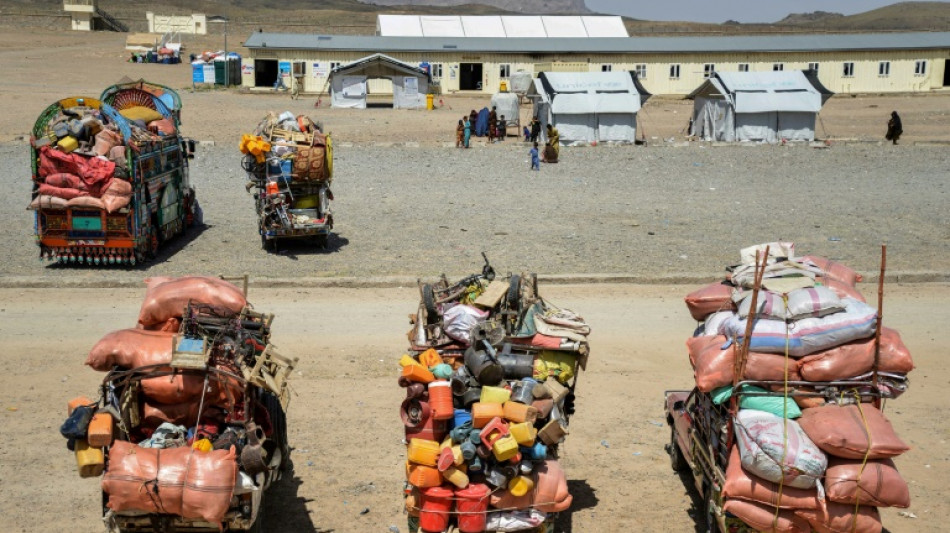
SCS
0.0500

Pakistan's foreign minister was due to visit Afghanistan on Saturday after his country expelled more than 85,000 Afghans, mostly children, in just over two weeks.
Islamabad has launched a strict campaign to evict by the end of April more than 800,000 Afghans who have had their residence permits cancelled -- including some who were born in Pakistan or lived there for decades.
Convoys of Afghan families have been heading to border towns each day fearing the "humiliation" of raids, arrests or being separated from family members.
Pakistan's foreign office said its top diplomat Ishaq Dar will hold meetings with senior Afghan Taliban officials, including Prime Minister Hasan Akhund during a day-long visit.
"There will not be any sort of leniency and extension in the deadline," Pakistan's deputy interior minister Tallal Chaudhry told a news conference on Friday.
"When you arrive without any documents, it only deepens the uncertainty of whether you're involved in narcotics trafficking, supporting terrorism, or committing other crimes," he added.
Chaudhry has previously accused Afghans of being "terrorists and criminals", but analysts say it is a politically motivated strategy to put pressure on Afghanistan's Taliban government over escalating security concerns.
He said on Friday that nearly 85,000 Afghans have crossed into Afghanistan since the start of April, the majority of them undocumented.
The United Nations' refugee agency said on Friday more then half of them were children -- entering a country where girls are banned from secondary school and university and women are barred from many sectors of work.
- Second phase of deportations -
The United Nations says nearly three million Afghans have taken shelter in Paksitan after fleeing successive conflicts.
Pakistan was one of just three countries that recognised the Taliban's first government in the 1990s and was accused of covertly supporting their insurgency against NATO forces.
But their relationship has soured as attacks in Pakistan's border regions have soared.
Last year was the deadliest in Pakistan for a decade with Islamabad accusing Kabul of allowing militants to take refuge in Afghanistan, from where they plan attacks.
The Taliban government denies the charge.
In the first phase of deportations in 2023, hundreds of thousands of undocumented Afghans were forced across the border in the space of a few weeks.
In the second phase announced in March, the Pakistan government cancelled the residence permits of more than 800,000 Afghans, warning those in Pakistan awaiting relocation to other countries to leave by the end of April.
More than 1.3 million who hold Proof of Registration cards issued by the UN refugee agency have been told to leave Islamabad and the neighbouring city of Rawalpindi.
X.Vanek--TPP